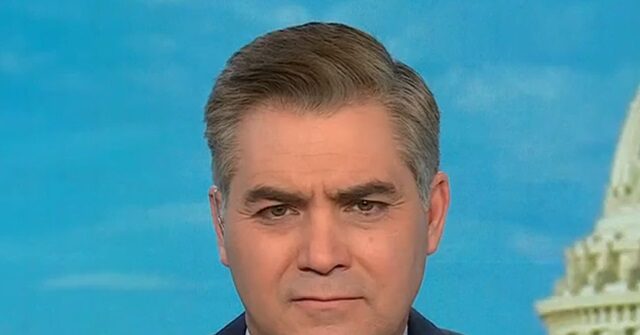On a recent episode of CNN’s “Newsroom,” host Jim Acosta brought attention to the ongoing government shutdown crisis, specifically highlighting Elon Musk’s role in spreading misinformation about the spending bill intended to prevent the government from shutting down. Acosta expressed concern over Musk’s influence over political narratives, particularly regarding his interactions with former President Donald Trump. One notable incident included Musk tweeting opposition to a bipartisan spending deal, warning Republican lawmakers that those who supported it could face primary challenges, a stance echoed by Trump shortly after Musk’s tweet.
Acosta’s criticism was reinforced by network media reporter Brian Stelter, who described many of Musk’s statements on social media as either misleading or outright false. Stelter pointed out that Musk referred to the spending bill as “criminal,” despite it being a legal legislative document. He emphasized the importance of recognizing the impact of Musk’s misinformation on public perception, suggesting that this narrative could complicate the already fraught political atmosphere surrounding the spending bill.
Adding to the conversation, Representative Dan Crenshaw, a Republican congressman, publicly challenged Musk’s claims. Crenshaw urged Musk to take a moment to verify the accuracy of the information he shares, particularly when it comes from dubious sources. This incident highlighted a growing concern within political circles regarding the consequences of unchecked influence on social media platforms, especially from public figures like Musk who have substantial followings.
Acosta intensified his argument by pointing to specific claims made by Musk, particularly regarding a purported 40% pay increase for members of Congress. Acosta noted that while there is indeed a cost-of-living increase included in the spending bill, it does not amount to the exaggeration articulated by Musk. This discrepancy in accuracy serves as a critical example of how misinformation can distort public comprehension of legislative actions and the motivations behind them.
The discourse surrounding Musk’s tweets is emblematic of a broader issue of misinformation in the age of social media, where individuals with significant financial and social capital can easily sway public opinion. Acosta’s remarks underscore the responsibility that comes with such influence, particularly when the stakes involve crucial government functions like budget agreements. The conversations around Musk’s claims also reflect a deepening division in American politics, as figures on both sides grapple with the implications of social media’s role in shaping and sometimes distorting political narratives.
In conclusion, the interplay between Musk’s online presence and significant political issues highlights a growing concern over the prevalence of misinformation in today’s media environment. The interactions between high-profile individuals, their social media activities, and the ensuing political consequences raise questions about accountability and fact-checking in digital communication. As this narrative continues to unfold, it remains essential for media outlets, politicians, and the public to critically evaluate the information being disseminated, especially during pivotal moments affecting government operations and public policy.

